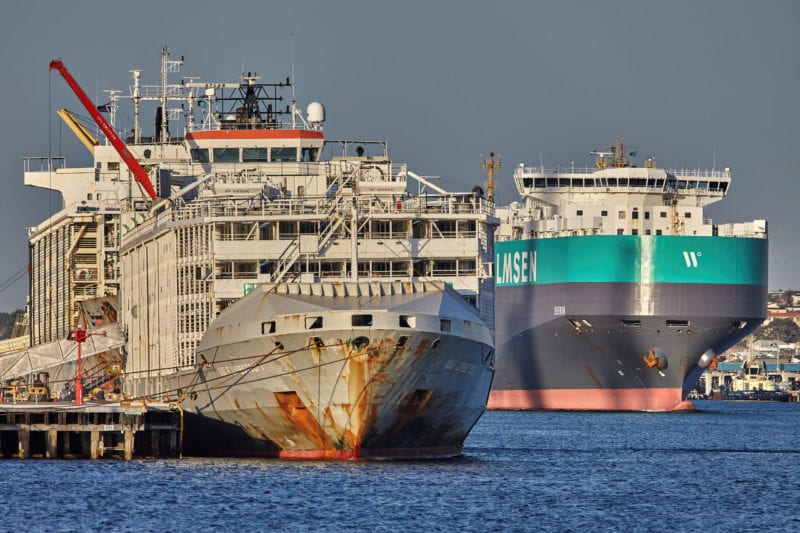New Zealand has suspended live cattle exports, after a ship sank off the coast of Japan, carrying almost 6,000 animals and more than 40 crew members.
So far, three crew members have been rescued from the Gulf Livestock 1, after the ship was caught up in a typhoon. One of the crew members did not survive.
On Thursday, 10 September the coastguard announced they would be scaling back the search.
The ship, which left from the port in Napier, New Zealand on 14 August, was carrying nearly 6,000 live cattle, along with 43 crew members on board.
The Ministry for Primary Industries has suspended livestock exports following the incident and is leading a review on livestock export rules.
In 2007, a conditional ban on the export of cattle, sheep, goats and deer for slaughter was introduced. Many have called for a complete ban on the export of livestock for breeding.
Marianne Macdonald from animal activist group SAFE says the Minister of Agriculture Damien O’Conner must take responsibility for the tragedy.
“The minister has failed and this is unnecessary suffering he has allowed to happen,” she said. “He needs to act to ban live exports quickly to stop another tragedy happening like this.”
Green Party spokesperson on animal welfare, Gareth Hughes, says the party supports a total ban on live exports. “It’s something I don’t think we should be doing,” he told RNZ. “I’m disappointed the review has taken so long to get to this point.”
New Zealand First and ACT do not support a total ban on livestock, and National have yet to comment on their stance.
O’Conner says New Zealand does not have jurisdiction over the incident and that the suspension of livestock exports was due to a need for more “clarity” on the safety on boats.
“We need to know that the boat is seaworthy and the competency of the crew means they’re not going to go into such unsafe situations again,” he told RNZ.
General Manager of New Zealand Farmers Livestock, Bill Sweeney says the ban on exports could put huge pressure on farmers.
“This is an absolute tragedy, our thoughts go out to the families … there’s nothing worse than to have had this happened,” he told Otago Daily Times.
“But you’ve also, in my mind, got to put it in context with thousands of boats that travelled backwards and forwards to China and all places that export. In 40 years in the industry that I’m aware of this is the first time this has ever happened.”
Sweeney says with the ban, there would not be enough capacity in the local market to take the thousands of cattle awaiting export, and that many would go to slaughter.
“I would say it would have huge ramifications for exporters and farmers alike, let alone livestock companies that are involved in the transactions in selling these cattle. A lot of farmers structure their business around live export.”




